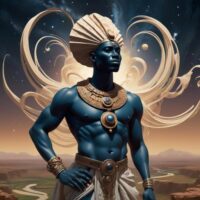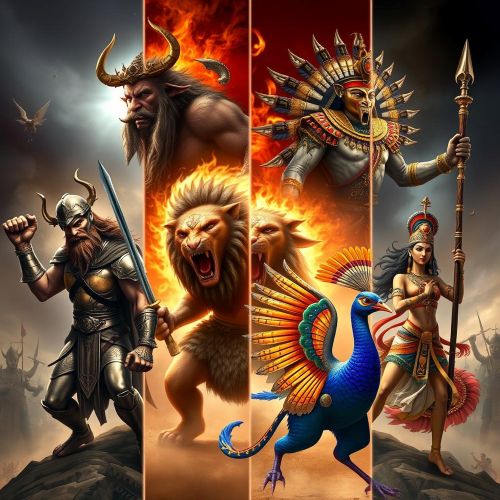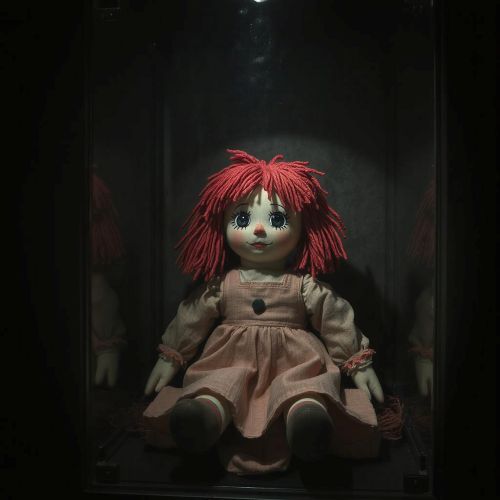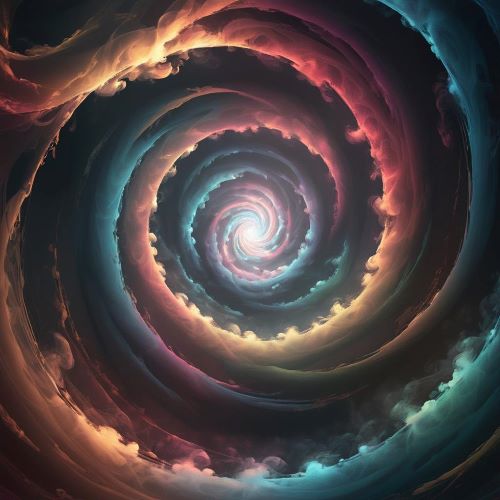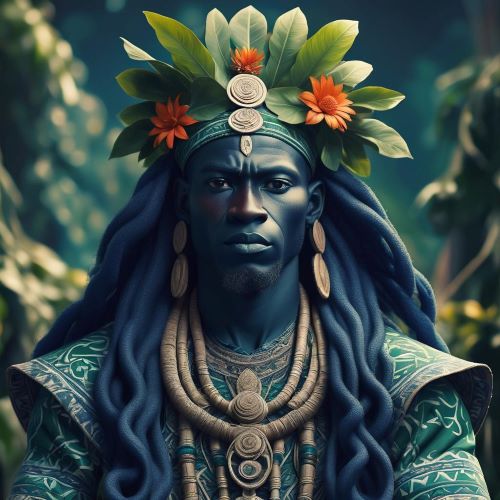Lebou : The Creator God
Listen
At a glance
| Description | |
|---|---|
| Origin | Wolof Mythology |
| Classification | Gods |
| Family Members | N/A |
| Region | Senegal, Gambia |
| Associated With | Creation |
Lebou
Introduction
The Wolof people, originating from the West African regions of Senegal and The Gambia, have cultivated a profound mythology steeped in reverence for the divine energies that govern the natural world. Central to this pantheon of deities is Lebou, a supreme figure responsible for shaping the landscape, infusing life into all living beings, and establishing cosmic order. Lebou stands as the pinnacle of Wolof spirituality, embodying the essence of creation and the harmonious balance within the universe.
Physical Traits
Lebou’s portrayal in Wolof oral traditions differs markedly from other mythologies, where specific physical descriptions of deities are common. This absence of physical details underscores Lebou’s omnipresence and limitless essence, transcending the confines of corporeal form. Instead of a tangible figure, Lebou is envisioned as an encompassing force imbued throughout the cosmos.
Interpretations of Lebou vary: some view him as inhabiting the expansive sky, symbolizing vastness and mystery, while others connect him with elemental forces like thunder, representing authority and power. The fluidity in Lebou’s depiction allows for a more personalized and intimate connection with worshippers, who envision him in ways that resonate with their spiritual understanding.
In African beliefs, including Wolof mythology, Lebou is often depicted as a luminous, pearly-white figure, yet his physical attributes remain secondary to his spiritual significance. The emphasis in Wolof mythology lies in understanding Lebou’s role and moral influence rather than focusing on his appearance. This approach highlights the deeper spiritual and ethical dimensions inherent in Wolof beliefs.
Family
The family connections of Lebou remain elusive in available Wolof sources. Unlike many African mythologies characterized by intricate familial relationships among gods and deities, Lebou’s familial details are largely unexplored within Wolof tradition. The absence of explicit references to a spouse or offspring underscores Lebou’s role as a solitary creator—an originator from which all existence emanates.
Some scholars propose a conceptual link between Lebou and “Roog” (Heaven) and “Bumi” (Earth). Together, these entities embody the duality of the universe, often referred to as “Roog ci Bumi” (Heaven and Earth), symbolizing the harmonious balance established by Lebou. While not portrayed as direct family members of Lebou, Roog and Bumi are viewed as manifestations of his creative energy—the fundamental elements from which the cosmos was forged. This interpretation highlights Lebou’s central role in shaping and sustaining the cosmic order within Wolof mythology.
Other names
Lebou, a prominent figure in Wolof mythology, is also known as Yumboe in the Wolof language, which additionally refers to “the good people.” Beyond Lebou, the Wolof language features a wealth of synonyms and honorific titles for this supreme deity. Roog, translating to “Heaven,” signifies the celestial realm associated with divine power, recognizing Lebou’s heavenly abode and status as the ultimate source of authority. Waa Xaaj, meaning “the All-Knowing One,” emphasizes Lebou’s omniscience and profound understanding of all things. Yalla, a more generic term for “God” or “deity,” encompasses Lebou alongside other potent spirits in Wolof tradition. These varied names provide worshippers with diverse ways to connect with Lebou, each highlighting specific aspects of his divine nature and importance within Wolof cosmology.
Powers and Abilities
Lebou, revered as the supreme god and creator in Wolof mythology, wields immense power and influence over all aspects of existence. He is credited with shaping the physical world, from the sprawling plains to the expansive oceans, and infusing life into all living beings, establishing the interconnected web of life. Lebou orchestrated the cosmic order, setting in motion the cycles of day and night, the changing seasons, and the natural laws that govern all things. Possessing complete knowledge and absolute power, Lebou sees and comprehends all, dictating the course of events with unwavering authority. While not directly intervening in human affairs, Lebou is regarded as a benevolent deity whose act of creation embodies generosity, providing a world where life can flourish. These remarkable abilities affirm Lebou’s status as the ultimate authority—the driving force behind existence and the master architect of the universe within Wolof cosmology.
Modern Day Influence
Lebou’s influence remains a vibrant thread woven into the fabric of contemporary Wolof culture through various manifestations. In daily life, Wolof people often incorporate prayers and invocations that invoke Lebou or his alternative names when seeking guidance, blessings, or expressing gratitude. This spiritual connection underscores Lebou’s enduring presence in the lives of believers, offering solace and inspiration rooted in ancient traditions.
Furthermore, the wisdom of Wolof proverbs and sayings subtly acknowledges Lebou’s role as a divine architect shaping their world and guiding their paths. These linguistic expressions serve as reminders of Lebou’s influence on morality, ethics, and societal values passed down through generations. The Wolof people’s profound respect for the natural world is also deeply intertwined with their belief that Lebou is the creator of nature. This reverence fosters a sense of responsibility and harmony with the environment, reflecting a spiritual stewardship that transcends mere existence.
In addition to its impact on everyday practices, Lebou’s legacy extends to modern literature and cultural expressions. Notably, in popular culture, such as the Harry Potter series and contemporary novels like “Skin of the Sea” by Natasha Bowen, Lebou is referenced through alternative names like Yumboe. These creative interpretations highlight how Wolof mythology continues to inspire and inform artistic narratives, showcasing Lebou’s timeless significance as a source of inspiration and cultural heritage that resonates beyond traditional folklore.
Related Images
Frequently Asked Questions
What is lorem Ipsum?
I am text block. Click edit button to change this text. Lorem ipsum dolor sit amet, consectetur adipiscing elit. Ut elit tellus, luctus nec ullamcorper mattis, pulvinar dapibus leo.
What is lorem Ipsum?
I am text block. Click edit button to change this text. Lorem ipsum dolor sit amet, consectetur adipiscing elit. Ut elit tellus, luctus nec ullamcorper mattis, pulvinar dapibus leo.
What is lorem Ipsum?
I am text block. Click edit button to change this text. Lorem ipsum dolor sit amet, consectetur adipiscing elit. Ut elit tellus, luctus nec ullamcorper mattis, pulvinar dapibus leo.
What is lorem Ipsum?
I am text block. Click edit button to change this text. Lorem ipsum dolor sit amet, consectetur adipiscing elit. Ut elit tellus, luctus nec ullamcorper mattis, pulvinar dapibus leo.
What is lorem Ipsum?
I am text block. Click edit button to change this text. Lorem ipsum dolor sit amet, consectetur adipiscing elit. Ut elit tellus, luctus nec ullamcorper mattis, pulvinar dapibus leo.

